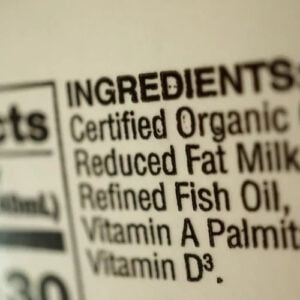
You see, as a forensic wellness expert, I often encounter clients who are diligently working on their health but aren’t fully aware of the culprits hiding in their kitchen cabinets and pantries.
Let’s start by addressing a common misconception: ultra-processed foods aren’t just limited to fast foods or obviously processed snacks. They’re sneaky little devils that can find their way into seemingly innocent items like cooking sauces, breakfast bars, cereals, pasta, crisps, turkey dinosaurs, chicken kievs, and more. Yes, even the staples we’ve grown up with and considered harmless may harbour ingredients that wreak havoc on our bodies.
So, what exactly makes these foods so harmful? It all boils down to the ingredients lurking within their packages. Take a moment to read the labels of your favourite cupboard items, and you might be shocked to find a laundry list of additives, preservatives, artificial flavours, and hidden sugars. These additives are not only devoid of nutritional value but can also trigger a cascade of negative health effects, from inflammation and digestive issues to hormone imbalances and mood swings.
Let’s break it down further:
But what kinds of foods are we talking about?
Let’s give you some real examples: I have checked the packaging on some random, and also VERY usual suspects that you WILL have in your cupboards, fridges or pantries just to give you some REAL examples and to help you understand exactly what i mean:
Hellmans Light Mayonnaise: The ingredients list contains something called ‘Calcium-disodium EDTA’ (E385). To you I am sure this means nothing, and let’s face it, ignorance is BLISS. However, E385 is also a ‘moderately risky’ additive and here’s why…..
EDTA is an antioxidant that protects food from deterioration. In high doses it can cause various adverse effects such as: Poor mineral absorption, mineral deficiencies, vomiting, diarrhoea, abdominal and muscle cramps, blood clotting and blood in the urine!
Oyster Sauce: For starters it’s laden with Salt, far too much per 100g than is ‘good for you’. Not only that, the ingredients list ‘Potassium Sorbate’…. Anyone know what that is? Well it’s actually another moderate risk additive which is a product of Sorbic Acid. Sorbic acid may react with nitrates and ascorbic acid to form mutagenic compounds, which are capable of causing changes in the structure of genetic material.
Warburtons Thick sliced white bread: From the ingredient list i can see that it has emulsifiers, and lots of things that are listed, you will have never heard of, and certainly won’t know what they are. Again, 2 moderately risky additives, E472e (Mono-and diacetyltaric acid) and E481
E427E – An emulsifier. This disrupts the intestinal flora and increases the risk of auto-immune disorders, allergies, and inflammatory diseases. The inflammation MAY even promote the development of colon cancer according to studies – you fancy taking that risk?
E481 – An additive and texturising agent. The acceptable daily intake (ADI) is very often exceeded, especially for children. A recent study showed that Sodium Lactylates have the capacity to alter gut microbiota composition.
As you can tell from just 3 normal store cupboard staples, there are UPF’s everywhere and they are damaging us all.
Now, you might be wondering, “How do I navigate the supermarket aisle and make healthier choices?” It’s all about mindful shopping and embracing whole, minimally processed foods. Fill your basket with vibrant fruits and vegetables, organic proteins and meat, whole grains, and healthy fats. Cook from scratch as much as possible, using fresh ingredients and herbs to add flavour without relying on processed additives. When you look at the list of ingredients and there are lots of letters, numbers, or things that you can’t pronnounce OR you have no idea WHAT they are…… PUT THE ITEM DOWN!
And remember, knowledge is power. Arm yourself with the tools to decipher food labels (like the YUKA app), and don’t be afraid to question what’s really going into your body. Your health is your greatest asset, so treat it with the love and respect it deserves.
Keep an eye on my social media pages for hints, tips and myth-busting to help you navigate wellness and encourage a healthier lifestyle, rather than a perceived healthier lifestyle.
Until next time, stay mindful, stay nourished, and stay well.
With love and wellness,
Helen Taylor



